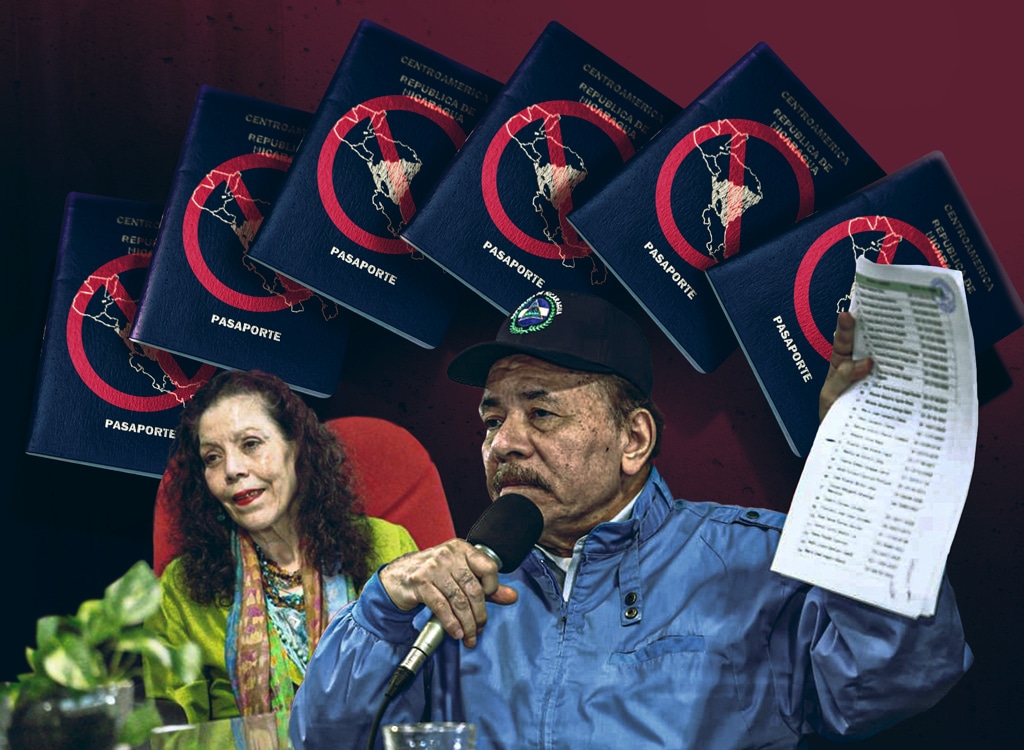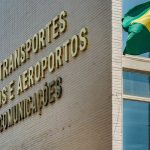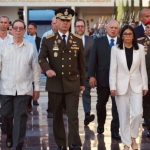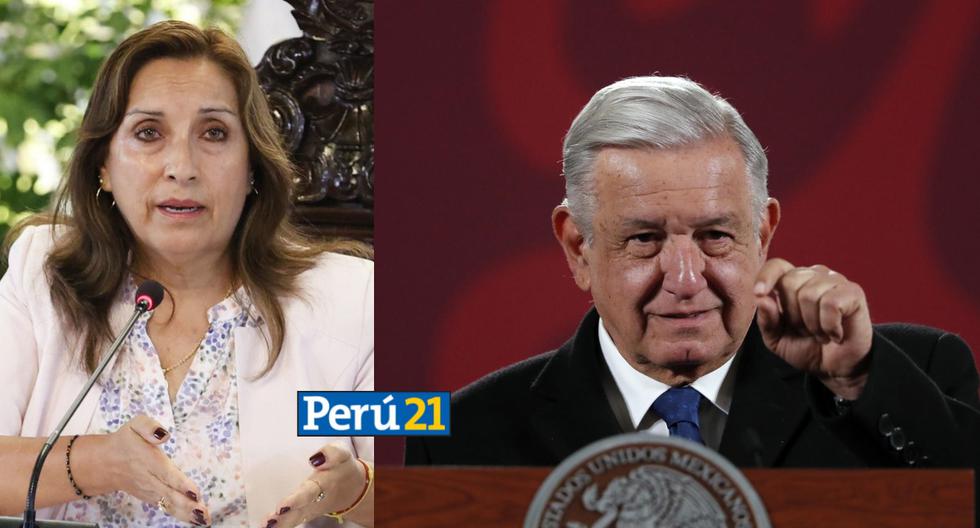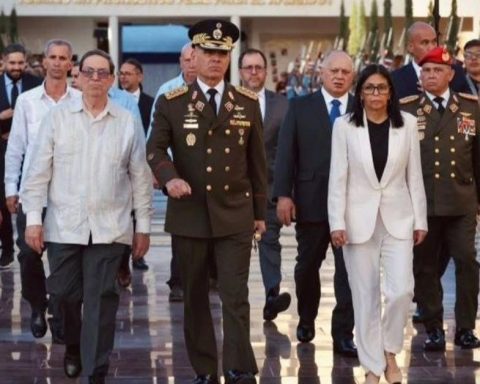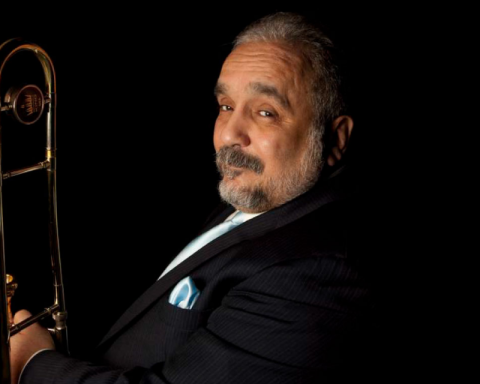In his first twelve days of exile in the United States, sociologist and economist Irving Larios made various purchases using the Nicaraguan passport issued by the Daniel Ortega regime as an identification document to exile him on Thursday, February 9, along with 221 other political prisoners.
Larios assures that the State Department authorities stamped the document, stating that he is a beneficiary of the Parole humanitarian program, which prevents him –for now– from leaving that country, while he enjoys a two-year temporary stay.
“We entered legally, because we entered with a passport. I have made purchases, I have identified myself, I opened an account in a bank with my passport. I have not had any uncertainty. They have acted as they have told us, ”said Larios, a member of the Articulation of Social Movements and who restarted his life, after being imprisoned since Monday, September 20, 2021.
However, the invalidation of the passports of 317 denationalized people between February 9 and 15 is imminent due to the dictatorship, according to the human rights consultant based in Mexico, Uriel Pineda, who is another of those affected by the measure.
In addition to the 222 political prisoners declared “traitors”, the regime stripped the nationality of the bishop of Matagalpa and administrator of the Diocese of Estelí, Rolando Álvarez, sentenced to 26 years and four months in prison and sent to a maximum security cell in the “La Modelo” men’s prison in Tipitapa, Managua.
The authorities also canceled the nationality of 94 citizens, whom they declared fugitives and confiscated their property, despite the fact that in the same documents they maintain that they are accused.
Cancellation of passports and confiscation of property
“I have no information that the documents have been invalidated. If they have not been, their cancellation is imminent. I would not recommend that you travel with that passport. The main thing is to seek the protection of the host or residence country,” suggested Pineda, a lawyer who is an expert in human rights.
On February 15, the justice system stripped Pineda of his nationality and property, as well as writers such as Sergio Ramírez and Gioconda Belli; the auxiliary bishop of Managua, Silvio José Báez; the human rights defender Vilma Núñez, and the director of CONFIDENTIALCarlos Fernando Chamorro and his wife Desirée Elizondo, among others.
Belli accepted the Chilean nationality and Ramírez the Colombian, while the president of Mexico, Andrés Manuel López Obrador, offered asylum and nationality to the “stateless” of Nicaragua.
The human rights expert, Uriel Pineda, explains that the judicial resolution against the 94 Nicaraguans establishes that the orders be notified to different institutions for their compliance, such as the Supreme Electoral Council, the Ministry of the Interior—whose function is to issue and cancel passports —, and the Ministry of Foreign Affairs.
In the case of the confiscated properties, the judicial authorities notified the sentence to both the National Directorate of Registries and the Public Registries of Real Estate and Commercial Property, because the order also includes that they appropriate the shareholding of those persecuted by Ortega.
Pineda added that, if the regime followed some legal logic, the risk of passport invalidation would be greater for the group of 94 denationalized, taking into account that the judicial file of the 222 prisoners of conscience was closed with their exile.
“But this government has not been characterized by respecting legal forms,” warned Pineda, who maintains that if the State of Nicaragua cancels the passports of the 317 denationalized, Nicaraguans immediately become stateless in the case of those who lack another nationality.
Gonzalo Carrión: “Will is to uproot you”
Another of those affected by the loss of nationality is the lawyer Gonzalo Carrión. The lawyer coordinates the Nunca Más Nicaragua Human Rights Collective, an organization founded in exile.
According to Carrión, the judicial resolution against the 317 denationalized has no legal basis and there is no precedent in Nicaraguan history either.
Carrión maintains that the regime does not have any legal power to remove nationality, taking into account that article 20 of the Political Constitution of Nicaragua prohibits it.
“When the magistrate reads: have yourself as a traitor to the homeland, officiate to the CSE. It is to erase you, they erase you from the country and that their intention is that you do not exist, obviously the passport is in uncertainty. I have a passport, but it is uncertain, because the will is to uproot you,” Carrión reiterated.
For this human rights expert, the international community must join Chile, Spain, Mexico and Argentina that offered nationality to all those persecuted by Ortega. “There is a regression to ancient times,” the lawyer firmly maintains, lamenting the situation of democratic regression in Nicaragua.
Costa Rican Vice Foreign Minister Christian Guillermet-Fernández, a country receiving thousands of refugees from Nicaragua, added a few days ago in a pronouncement that international law prohibits the arbitrary deprivation of nationality of citizens for racial, ethnic, religious and political reasons.
The dictatorship told its political bases that they sanction “traitors” of the country. In an interview offered to the official media, the president of the National Assembly, Gustavo Porras, justified the constitutional reform approved by the Assembly to remove nationality as “the search for peace” in a “Sandinista homeland.”
“The Nicaraguan State makes its decisions, what corresponds to the executive part, what corresponds to the judiciary, what corresponds to the parliament, the entire Nicaraguan State in order to guarantee that at that moment identified by the commander (Daniel Ortega) that right now the order and it will be successful,” Porras said about the exile of political prisoners.
In this way, the main political operator of the presidential family accepted that for Irving Larios and the other political prisoners to leave Nicaragua, in addition to handing them over to the United States, it was necessary to subordinate the powers of the State to the will of the tyrant.
UNHCR: Contravention of international law
The agency of the United Nations Organization for Refugees (UNHCR) expressed its concern in a statement, published on February 17, 2023, about the deprivation of nationality in the Nicaraguan case and mentioned that this country is party to the Convention on the Status of Stateless Persons, of 1954, and also of the Convention to reduce cases of statelessness, of 1961.
“In Nicaragua, the most recent legislative reforms that make it possible to arbitrarily deprive a person of their citizenship contravene the obligations of this country within the framework of international and regional human rights law. International law prohibits the arbitrary deprivation of nationality for racial, ethnic, religious or political reasons,” UNHCR said.
Stateless persons are those people who are not recognized by any country as a citizen, in accordance with its legislation. The UN maintains a campaign, with its agencies, to end statelessness by 2024.
The organization regrets that there are currently millions of people who are denied their nationality and points out to the States that they can deprive it “through changes in the law that leave entire populations stateless, using discriminatory criteria such as ethnicity and race ”.
For Pineda, in the case of Nicaragua, the political motivations against those affected are clear. “What is the regime looking for? Immobilize human rights activism outside of Nicaragua. While we are taking steps to see our legal situation and others, we are distracted from this work of denouncing human rights violations”, she opined.
Since April 2018, Nicaragua has been experiencing one of the most serious humanitarian crises in the region, after Ortega ordered the repression against peaceful protesters who were calling for his resignation after an unconsulted reform of Social Security. In September 2018, the police authorities prohibited the protests, imposing an emergency regime that is characterized by political surveillance of opponents, as well as the violation of freedom of expression, demonstration and association.
